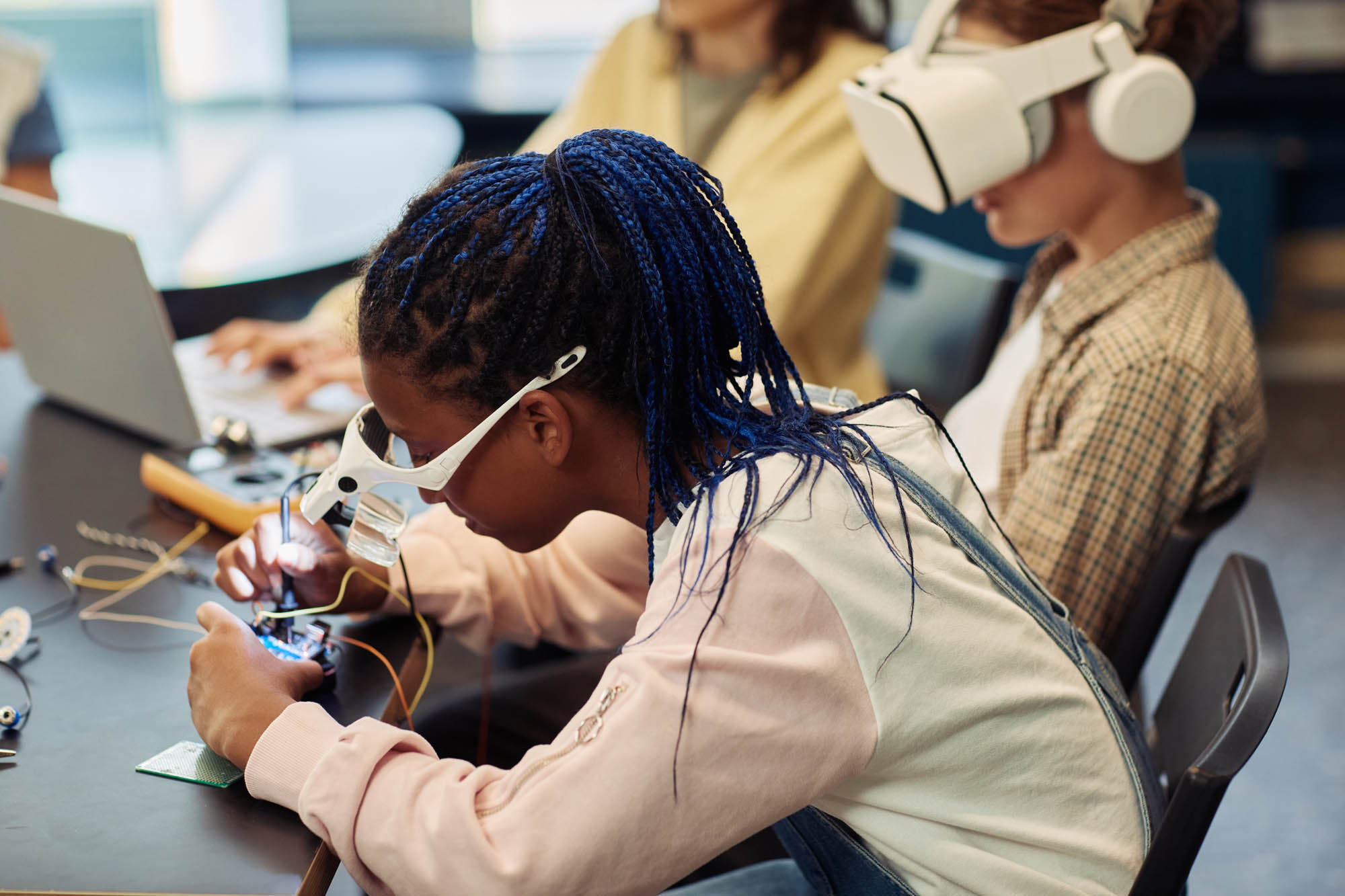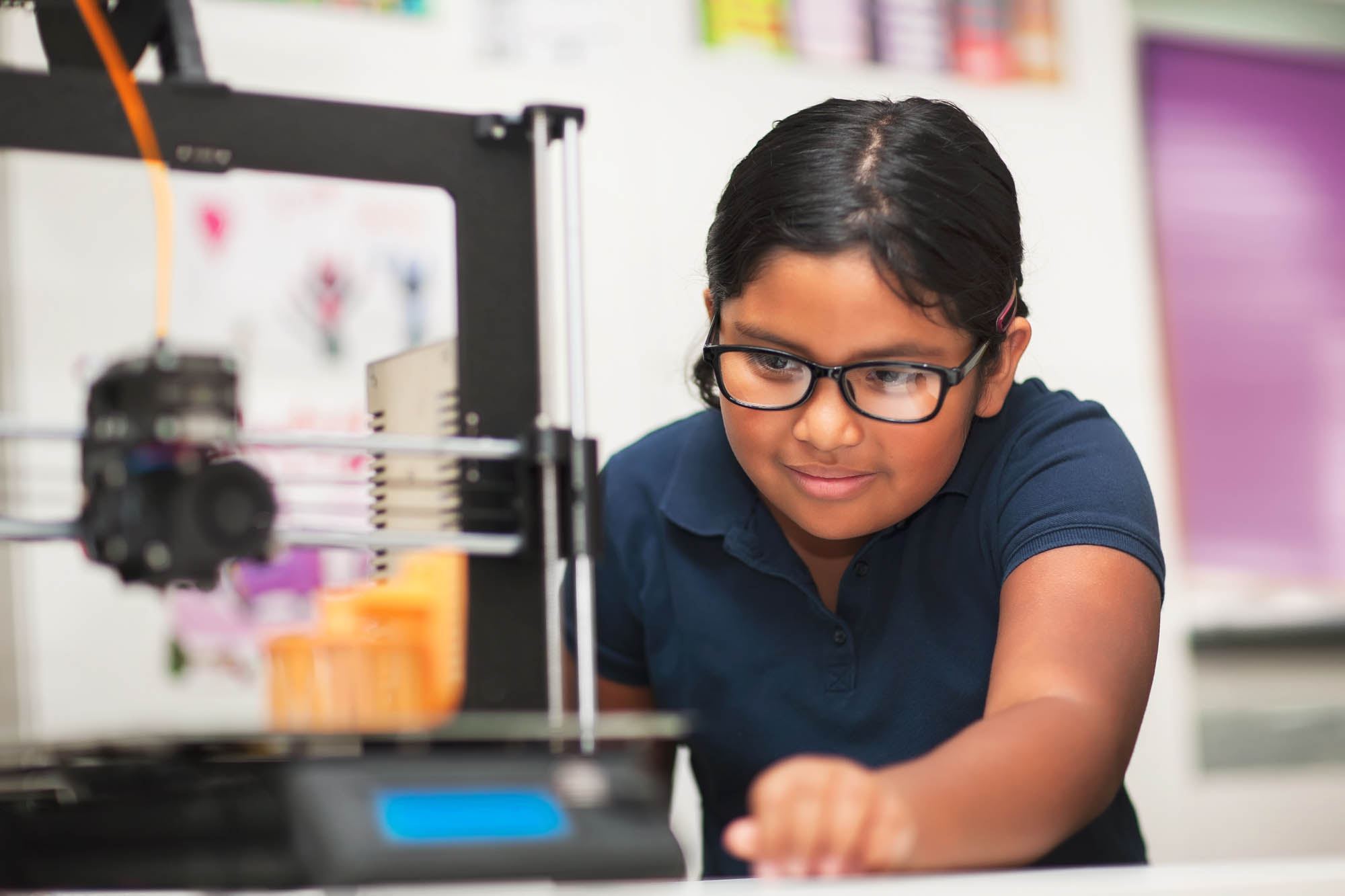Middle School
ARK EducatePhilosophy.
The remarkable phenomenon of adolescence inspires the Middle School ARK Educate curriculum. Our approach is based on specific developmental orientations to curiosity, engagement, and hands-on learning. Our model is scalable and uniquely relatable to adolescents. Students embrace scientific principles and build on the inquiry-based foundation that began in elementary school.
ARK Educate modules accommodate differentiated learners and align with our Teacher Training practices. Mindset shifts evidence success. Students enthusiastically regard disruptive innovation as relevant to their learning. Students develop an innovation mindset through ARK Educate's modules – taking innovation from the classroom into the world.

Program.
ARK Educate's problem-first thinking approach is applied in all seven hands-on modules for sixth, seventh, and eighth grades. Lessons are situated in scientific methods and principles within a series of Innovation challenges. These lessons are designed in line with our core objectives and framed by four questions:
- What do we see?
- What conclusions can we draw?
- How do we know?
- Why is this relevant?
Then, students investigate and analyze ideas through ongoing interactive experiences emphasizing expansive thinking, imagination, collaboration, passion, and mastery.
All modules are aligned to state or independent school academic science standards. In sixth grade, students engage in one innovation concept per module. There is additional analysis, experimentation, engagement, and focus time in seventh and eighth grades. As students pursue robotics, they learn to program in Scratch, an open-source coding language.

Modules Aligning Innovation to Life, Earth, and Physical Sciences.
Module 1
Re-designing School Lunch
Module 2
Wearable Health Technology
Module 3
Building Sustainable Infrastructure
Module 4
Do-it-Yourself Water Filtration
Module 5
Drones for Predicting Weather and Saving Lives
Module 6
How Batteries Work
Module 7
Re-designing Reusable Rockets
Aligning Innovation and Engineering to the Life, Earth, and Physical Sciences.
Module 1
Earth Science/Robotics:
Measuring the Age of Rocks on Mars
Module 2
Life Science/Robotics:
The Evolution of Robots
Module 3
Life Science/Robotics:
DNA, Nanorobots
Module 4
Life Science/Gamification:
Gamifying Food Webs
Module 5
Physical Science/Gamification:
Re-mixing Heat Transfer
Module 6
Physical Science:
Virtual Reality 101
Module 7
Physical Science:
Virtual Reality Space Exploration
Modules Agning Innovation to Life, Earth, and Physical Sciences.
Module 1
Physical Science/Artificial Intelligence:
Classifying Substances, Emails, and Letters
Module 2
Physical Science/Artificial Intelligence
Recreating the Periodic Table Using AI
Module 3
Physical Science/Artificial Intelligence
Can We Trust AI?
Module 4
Life Science/ Solar Innovations
Artificial Photosynthesis
Module 5
Life Science/ Battery Innovations
Powering the Future: Battery Innovations
Module 6
Earth & Space Science /Space Innovations
Returning to the Moon
Module 7
Earth & Space Science /Space Innovations
Three Missions to the Moon